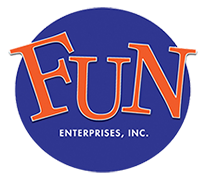Assertiveness and Conflict Resolution
Resolving Conflict in your Group or Organization
We have structured sessions in all aspects of conflict. Whether you are trying to resolve a conflict, manage conflict or identify dysfunctional groups with conflict, these sessions will give your students, employees or volunteers the necessary tools to resolve any issue. If you would like us to customize the session with real issues, associated with you group or organization, we can facilitate the discussion.
Conflict Resolution
Conflict is good? Some might wonder how this can be. During our time together, we shall discuss conflict as it really is – something that always happens in groups and something that can have positive results if managed correctly. We’ll share ideas and thoughts on the topic and then you’ll learn about the way you specifically handle conflict and how your style works and doesn’t work in different situations. Finally, we’ll talk about ways to increase our assertiveness in situations where conflict emerges?
Conflict Management
Does the mere mention of the word “conflict” tie you up in knots? Do you approach situations like “Rambo?” If you react to conflict in either of these ways or whether you’re just interested in learning how to handle conflict better – then attend this session. After we reflect on our experiences with conflict, we’ll spend some time learning about how conflict emerges and then manifests itself in our relationships. Then, you’ll take a survey that tells you in some detail about your own conflict handling mode. You’ll definitely leave the session understanding conflict and your way of handling it better – you may even come to realize that conflict can actually be good for organizations and relations!
Managing Dysfunctional Groups
Does your group have problems working together? Do people’s individual issues play into how well the group performs? During this session we’ll explore those “dysfunctional” behaviors that get in the way of group cohesiveness and success. We’ll explore the types of behaviors likely to occur and techniques that the leader and other members may use to manage and then extinguish that behavior. In addition, we’ll look to the participants to share their particular issues and to the group to brainstorm solutions using the techniques presented.
Assertive and Constructive Critisism
Are you afraid to speak your mind? Do conflict situations leave you saying, “I should have said something?” In this session, we will discuss assertiveness the most positive alternative to a host of interpersonal behaviors. In addition, we’ll examine how to communicate our needs and opinions in ways that engage others and banish defensiveness. What’s unique about this discussion? We’re going to explore being assertive in a way that puts concern for others first.
Assertive and Constructive Confrontation
Tired of being a doormat? Are you left saying, I should have said something! after interactions? Let’s learn a framework for communication that leaves both parties satisfied.
Using Assertiveness Skills to Reach Peak Performance
Student affairs professionals know the importance of assertiveness as a tool to create clear communication. Even with this knowledge – confronting others can still be difficult. Here’s a new approach: let’s combine assertive behavior with our care and concern for the students and colleagues with whom we interact. When approaching them from this “ethic of care” assertiveness and constructive confrontation not only becomes possible – it becomes easier. Participants will depart understanding that caring enough to constructively confront others can allow future success – for the individuals involved as well as the University.



